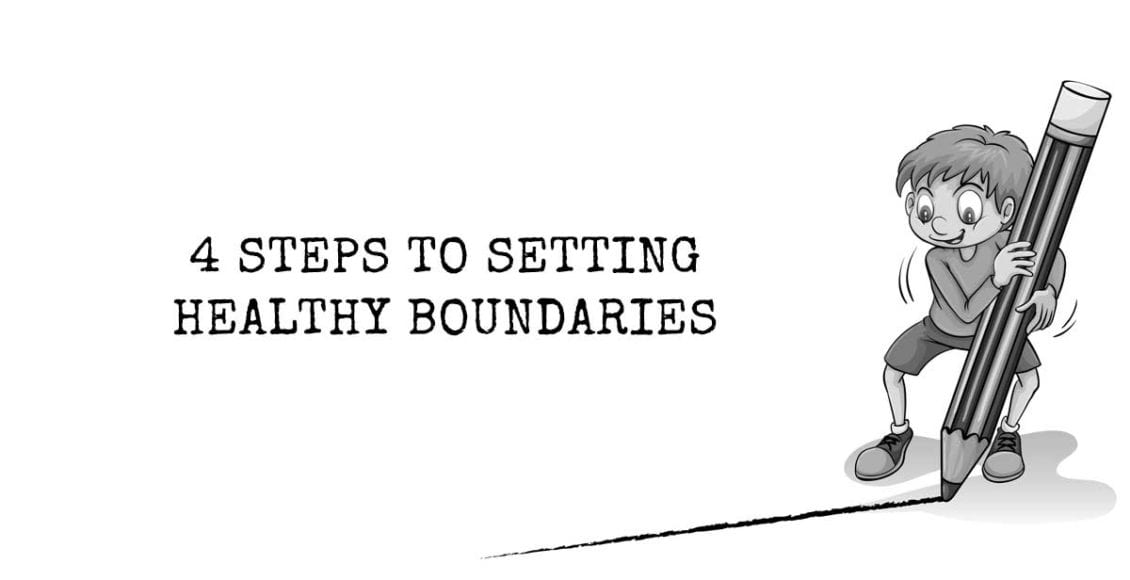“We change our behavior when the pain of staying the same becomes greater than the pain of changing. Consequences give us the pain that motivates us to change,” explained Henry Cloud.
When we don’t set boundaries, we allow a situation to become more painful than it needs to be. Setting boundaries can be difficult, but not setting them is far more so in the long run. A lack of boundaries can cause resentment and encourage others to take advantage of our good nature.
When we set healthy boundaries, we practice self-respect, self-care, and authenticity.
We improve our relationships with those around us by defining our ground rules and setting expectations with a sense of fairness and clarity.
Unfortunately, boundaries are often set only after we’ve been pushed too far. We become angry and resentful. The relationship has likely already deteriorated beyond repair. The earlier we make our boundaries known, the less likely they are to be violated. Learning to set a firm boundary early on can often save the life of a relationship.
This is what healthy boundaries sound like:
- “I am not okay with you yelling at me. I will discuss this when we can speak to one another calmly and respectfully.”
- “I can’t work overtime this weekend. Since I wasn’t on the schedule, I already made plans.”
- “I can give you a ride home, but I absolutely need to leave by seven. If you’re any later than that I’m going to have to leave without you.”
- “Your friend has a drug problem, and I’m not comfortable being around him. Please don’t invite him over to our house again.”
- “I’ve been doing much more than my fair share of the chores. From now on, I’m only washing my own dishes. I’ll expect you to wash your own.”
Learning to set boundaries like these can be difficult. Here’s how to do it in four simple steps:
1. Identify your needs.
What happened that made you realize the need for a healthy boundary? How did you feel? Do you have a good reason for setting this boundary, or are you looking for a way to punish someone in the heat of the moment? How, specifically, do you need things to change going forward? How will this impact your life? Your relationship? Your partner? Is setting this boundary fair and reasonable to all involved? Take time to reflect on your emotional needs and identify the desired impact of your boundary. You should have a clear goal in mind – for example, feeling safer, being treated fairly, or relating to one another in a more positive way.
2. Define your boundary.
Be as clear and specific as possible. A boundary needs to be concrete and easily understood in order to be enforced effectively. For example, rather than asking your husband to help out more with the housework, you might request that he take on responsibility for sweeping the floors or doing the dishes. Attach a consequence to the boundary being broken, so your loved one knows what to expect. Your loved ones want to respect your boundaries. Not understanding how to do so can leave them feeling confused, frustrated, and incompetent. Set your boundaries on the firmer side – it is much easier to ease up on a strict boundary than to tighten a loose one.
3. Make your boundary known.
Be firm, but remain as calm and kind as possible. Treat the other person with respect. Remember, you are asking for their cooperation. The more courtesy and respect you show, the more likely you are to receive it. However, there is a difference between being polite and being a pushover. Even as you communicate it with respect, your boundary should remain firm. Don’t apologize for setting it. Don’t explain excessively. You don’t need to justify your behavior. Communicate your new boundary quickly and clearly to avoid confusion. Avoid placing personal blame, and reinforce the fact that you value this relationship.
4. Enforce your boundary.
Some people will try to test your new boundaries by violating them early on. Don’t allow this to slide. If you do, you are breaking this boundary and weakening every one you might try to set in the future. Enforce your boundary by carrying out the consequence you originally set – no more and no less. If you promised to remove a certain privilege, do so immediately. If you said you would move out, it is now your responsibility to follow through. This is why it is important to set realistic consequences before the boundary is violated. If you have nothing to enforce, then your boundary has no legs to stand on and is likely to fall apart.
“When we fail to set boundaries and hold people accountable, we feel used and mistreated. This is why we sometimes attack who they are, which is far more hurtful than addressing a behavior or a choice,” wrote Brené Brown. Setting boundaries may seem harsh, but doing so is necessary in maintaining a healthy relationship. What boundaries do you need to set in your life?



